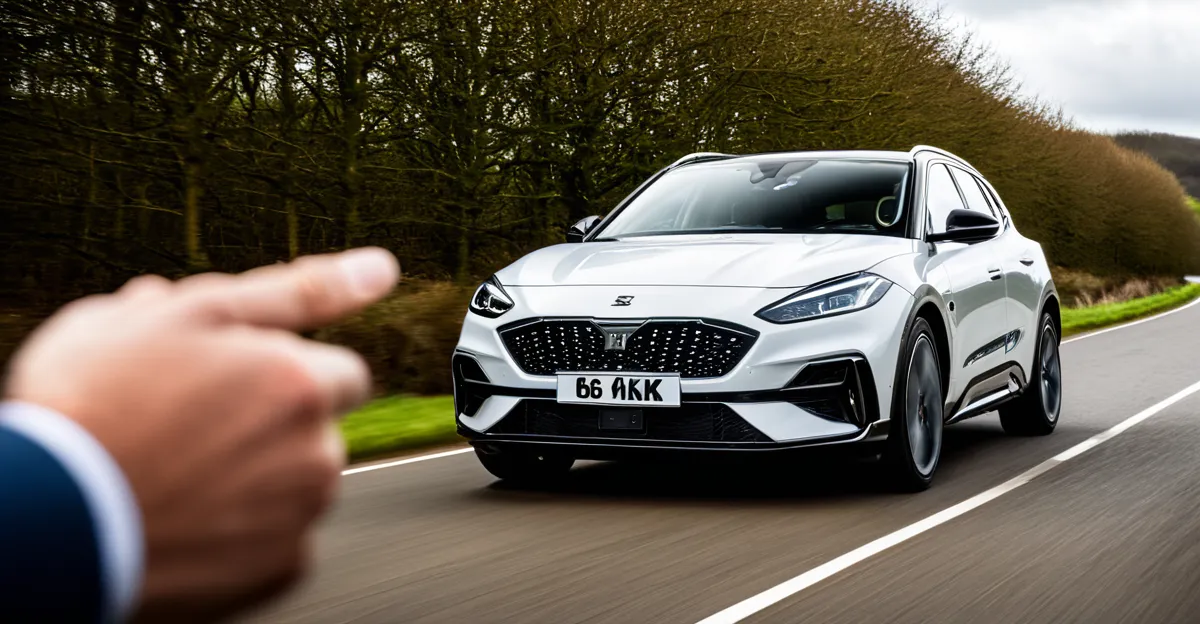Strategic Export Growth by UK Car Brands
Expanding export strategies remains pivotal for UK car manufacturers aiming for robust international sales. These brands strategically enhance market penetration by entering both emerging and established markets. For example, UK manufacturers tailor their product lines carefully, aligning with diverse international consumer preferences to increase appeal and competitiveness abroad.
Leveraging trade agreements significantly lowers barriers and facilitates smoother operations across borders. UK car brands also capitalize on extensive international distribution networks, enabling efficient and reliable delivery of vehicles to global customers. This network optimization plays a crucial role in strengthening international sales volumes.
In the same genre : How is the UK addressing the demand for skilled labor in the automotive sector?
Moreover, many UK car manufacturers design export operations that are flexible enough to adjust to shifting market dynamics. This includes real-time responsiveness to economic changes and local consumer trends in export destinations, which boosts the adaptability and resilience of export activities.
In essence, the success of UK car brands in global markets hinges on carefully balanced export strategies that emphasize customized product offerings, strategic use of trade agreements, and enhanced distribution capabilities. This holistic approach effectively drives growth and cements the brands’ standing in competitive international markets.
Also read : What is the future of diesel cars in the UK automotive market?
Overseas Manufacturing and Localisation Initiatives
Localization through overseas production is a key strategy in the UK automotive industry’s global footprint. Establishing manufacturing plants and assembly lines closer to target markets allows UK car manufacturers to reduce shipping costs, avoid tariffs, and comply with local regulations effectively. This approach enhances cost efficiency and accelerates delivery times, strengthening competitiveness in diverse markets.
Localisation also involves adapting vehicles to meet regional safety, emissions, and consumer preferences. For example, tailoring engine specifications or interior features ensures models resonate well with local customers. Such adjustments improve brand acceptance by demonstrating responsiveness to cultural and regulatory environments.
The impact on global manufacturing is profound, as it shifts UK car manufacturers from purely export-based operations to integrated international supply chains. This shift promotes flexibility in production volumes and faster market responsiveness. By investing in overseas facilities, UK car manufacturers ensure sustained growth and resilience amid global economic fluctuations.
In summary, the integration of overseas manufacturing and localisation initiatives is essential. It not only optimizes production and distribution but also positions UK car brands as globally adaptive and customer-focused, reinforcing their international sales and long-term market relevance.
Joint Ventures, Strategic Partnerships, and Alliances
Strategic joint ventures and international partnerships are critical for UK car manufacturers seeking to expand global reach efficiently. By forming collaborations with local companies and global automotive groups, UK brands leverage local market knowledge, regulatory expertise, and established networks to accelerate market penetration. This approach reduces risks and investment costs while enhancing access to new customer bases.
Automotive collaborations often involve technology exchange, enabling shared research and development that supports regional adaptation of vehicles. For example, joint ventures facilitate modifications to meet specific safety and emissions standards, aligning products more closely with international sales requirements. This synergy promotes innovation while maintaining competitive pricing.
Jaguar Land Rover and MINI exemplify effective strategic alliances. Both brands have partnered with global companies to combine resources and expertise, leading to successful entry and growth in diverse markets. These collaborations also support supply chain resilience by localizing component sourcing and assembly operations.
In short, joint ventures and partnerships enable UK car brands to navigate complex international landscapes more adeptly. They provide a flexible framework for growth, innovation, and enhanced responsiveness to local consumer demands and regulatory environments—strengthening the overall export strategies of UK car manufacturers.
Marketing Approaches for International Brand Recognition
Developing effective global marketing strategies is essential for UK car manufacturers aiming to enhance international sales and deepen market penetration. Tailored marketing campaigns address the distinct preferences and cultural nuances of consumers in diverse regions. UK car manufacturers often utilise automotive marketing tools such as motorsport sponsorships, international auto shows, and targeted advertising to raise brand profiles globally.
One common question is: How do UK car brands build recognition across different markets? The answer lies in consistent yet locally adapted branding. For example, motorsport events create excitement around performance and heritage, appealing broadly while sponsorships align the brand with popular regional interests. These strategies foster emotional connections with consumers, increasing loyalty and market share.
Digital presence also plays a pivotal role. UK car manufacturers enhance visibility through social media platforms, engaging content, and localized websites. This consumer outreach enables direct communication and feedback, which support continuous refinement of marketing tactics.
The combined use of global campaigns and localized efforts ensures that UK car manufacturers maintain a cohesive brand image while resonating with regional audiences. By integrating traditional and digital branding strategies, they effectively secure a competitive edge in international markets.
Entry into New International Markets
Entering new international markets demands carefully crafted market entry strategies that align with the unique characteristics of each region. UK car brands first identify high-growth regions by analysing economic indicators, consumer demand, and local automotive trends. Precision in targeting ensures resources are efficiently allocated to markets with the highest potential.
One common question is: How do UK car brands overcome regulatory and logistical barriers? The answer lies in comprehensive local market research combined with strategic partnerships that facilitate compliance with local regulations such as safety standards, emissions controls, and import laws. Moreover, UK car manufacturers often invest in infrastructure or collaborate with local distributors to streamline logistics and reduce delivery times.
Brand-specific pathways matter greatly. Established brands like Jaguar Land Rover may use their premium status to enter luxury markets, whereas others tailor offers to fit cost-sensitive consumers in emerging markets. For example, successful entry into Asian markets has involved localising models and services to suit regional preferences, blending global appeal with local relevance.
In essence, penetrating new markets is a nuanced process requiring flexible strategies that combine market entry expertise with on-the-ground execution. This helps UK car manufacturers sustain globalization and expand their footprint amid a competitive international landscape.







